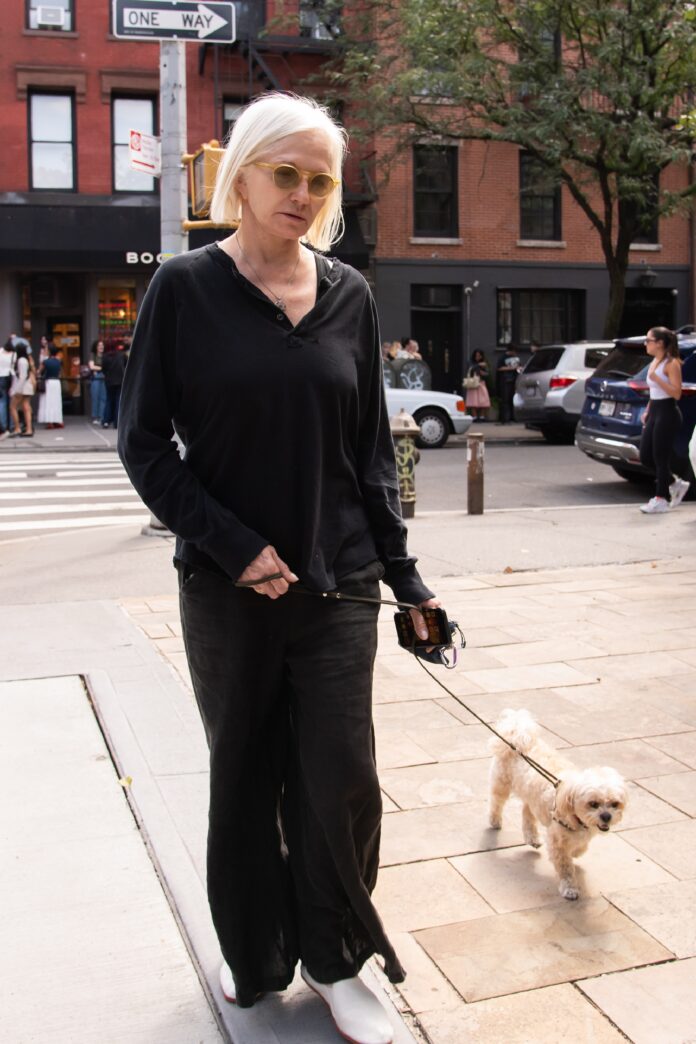A famous actress has been kicked off her health insurance after retiring, reflecting the larger struggles entertainment professionals face once they decide to stop working.
Ellen Barkin, 69, who has starred in films such as Diner, The Big Easy, Sea of Love and Ocean’s Thirteen, has mostly stayed out of the spotlight. But she took to social media platform X, formerly Twitter, this week to share some alarming news.
“I was just informed that I was thrown off my SAGAFTRA health insurance because residuals don’t count as earnings for seniors….seniors who need it most,” she wrote.
The SAG-AFTRA health insurance is available to actors for roughly between $125 to $250 a month. Typically, beneficiaries need to have $26,470 in covered earnings and work at least 102 days a year.

MEGA/GC Images
SAG-AFTRA reached a new deal with Hollywood studios this fall that promised $1 billion in new wages and benefits plan funding. There will also be a participation bonus for actors on successful streaming shows.
Barkin’s followers were in an uproar after she shared her story.
“This is so wrong for Actors who have worked most of their lives in show business. Does this mean an Actor can never really retire if they want to maintain SAGAFTRA coverage?” one follower wrote.
Barkin, 69, replied: “Exactly what it means.”
Another social media profile said: “Ageism is something very nasty in our society.”
Newsweek reached out to Barkin and SAG-AFTRA by email for comment.
Why exactly is Barkin unable to get health insurance and what are options for other actors in her position?
“If she is being taxed for the income she receives from residuals, then she, in theory, should still qualify for health insurance,” Connor McNelis, the marketing and customer relations spokesperson for New York City’s costume and makeup Abracadabra store, told Newsweek.
McNelis is also a SAG-eligible actor who has witnessed the challenges seniors often meet at the end of their acting careers.
“Our industry is not immune to ‘aging out’ unfortunately, most commonly seen in older actors having increasing difficulty in getting cast, both in film and in theatre,” McNelis said.
“Older actors want to keep working. While it’s perfectly fine and normal for actors to want to retire at a certain age, or perhaps switch fields into writing or directing, I’ve found many actors want to work as long as they can.”
American Horror Story producer and writer Melissa Wylie said this is especially a problem in the industry as residuals do not count as earnings toward insurance.
“Ellen Barkin has had a successful long career that most actors don’t enjoy, so if she’s being affected, it’s something every retiring actor will be faced with,” Wylie told Newsweek. “It’s beyond unfortunate.”
Wylie said in the entertainment industry there aren’t many safety nets for actors, and it’s an issue no matter what age you are.
“It’s deeply concerning that actors that retire cannot maintain their health insurance, but I find it equally disturbing that I work with so many young talented, hard-working actors who can never afford insurance to begin with,” Wylie said.
For actors who love their work, that keeps them going and surviving, McNelis said. Still, for the average actor who doesn’t have celebrity status, their health will be the primary hurdle to overcome in order to keep working. That causes the SAG-AFTRA “days worked requirement” to become a double-edged sword.
“You make health insurance more difficult to obtain and to keep, for older actors, and you essentially take away the fountain of youth for them that is creation and play in being an actor,” McNelis said. “It signals to them that they don’t matter until they show up in an ‘In Memoriam’ highlight reel.”
Uncommon Knowledge
Newsweek is committed to challenging conventional wisdom and finding connections in the search for common ground.
Newsweek is committed to challenging conventional wisdom and finding connections in the search for common ground.





































